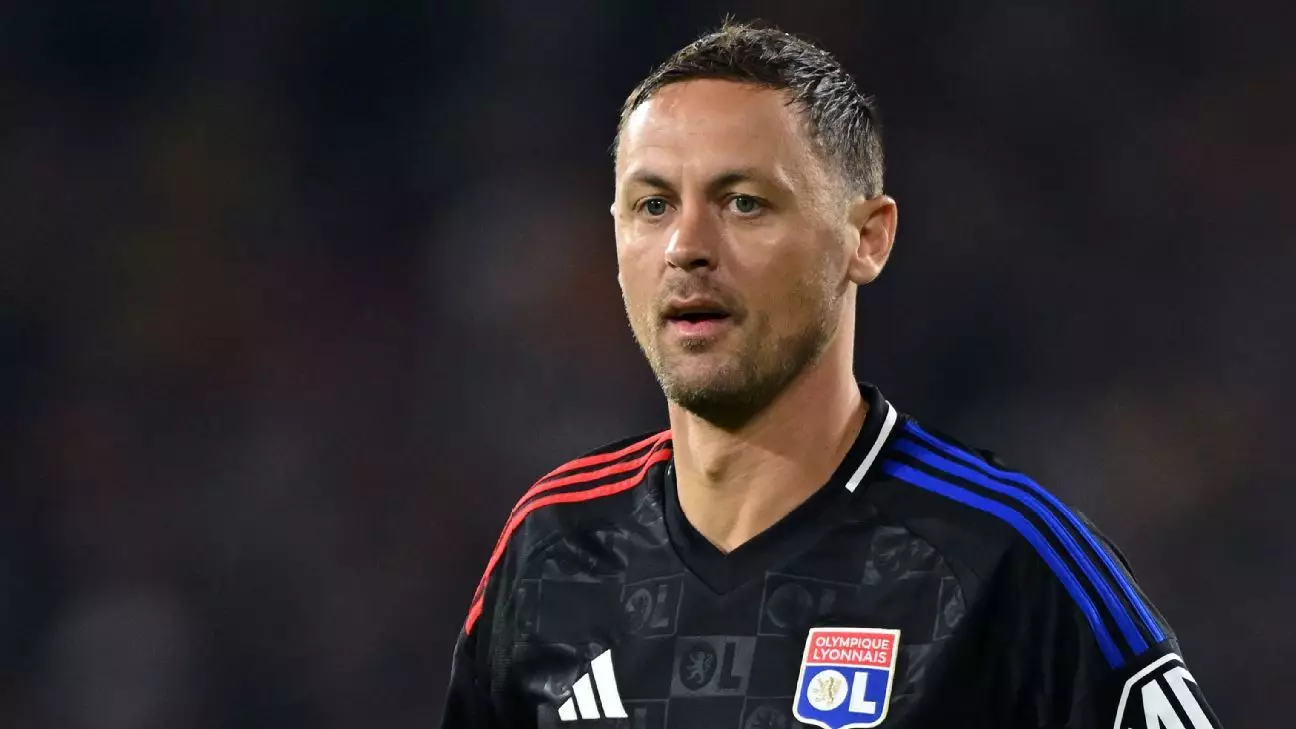The air is palpable with tension as Manchester United gears up for their Europa League quarterfinal first leg against Lyon. This particular clash has ignited not just competitive spirits on the field but also a war of words off it. The controversy is centered around André Onana’s assertion that United is “way better” than Lyon, a claim met with fierce rebuttal from Nemanja Matić, the Serbian midfielder now representing Lyon. The unfolding drama is not merely a prelude to a football match; it exemplifies the emotional stakes athletes invest in their respective clubs and legacies.
Matić’s Seething Critique: A Response Rooted in History
Matić, who donned the Manchester United jersey for five years without clinching a title, has vehemently lambasted Onana’s statement. He labeled the Cameroonian goalkeeper as “one of the worst” in the club’s history, a remark that underscores the complexities of judging a player’s worth based on their performance. Such sharp criticisms reflect not only dissatisfaction with a player’s current form but also a longing for the glory days past. It hints at a divide regarding expectations and the evaluation norms within one of football’s most storied clubs.
Curiously, Matić’s comments also highlight a broader narrative: accountability. In the age of social media and instant commentary, players are no longer just athletes but public figures. They must navigate reputations and statistics while engaging in a marketplace of ideas where every opinion can be scrutinized. Matić’s insistence that Onana should perform at a level befitting a Manchester United keeper before making grand declarations reflects the rigidity of standards that accompany playing for such a prestigious club.
Onana’s Retaliation: A Defensive Stance
On the other hand, Onana’s retort, while initially seeming defensive, showcases an athlete who is keenly aware of the pressures that come with success. His reference to lifting trophies at United—in a photo shared on social media—serves a dual purpose. It aims to silence critics while also rallying his supporters, demonstrating resilience in the face of adverse opinions. The goalkeeper’s social media tactics reveal a modern athlete’s strategy: turning criticism into motivation while seeking to fortify his position within the team. Yet, one cannot ignore that boasting of past successes doesn’t erase current performance issues, leading to a paradox that Onana must reconcile.
The Wider Implications: Understanding Club Loyalty and Legacy
An integral aspect of this rivalry between the players is the notion of legacy. For Matić, who may feel slighted by unfulfilled aspirations at United, his criticisms invoke a sense of entitlement to speak on behalf of club history. Meanwhile, Onana has a fresh slate; his tenure is still young, leaving room for growth or further criticism. This friction thus highlights a larger conversation about how legacies are built and tested in elite sports.
As United finds itself languishing in the Premier League rankings, the stakes of the upcoming match grow exponentially. Both players bring their histories, ambitions, and a palpable need for vindication to the pitch. As fans, we are not just spectators; we are witnesses to a dynamic where past grievances and current forms collide—an arena where every statement counts and every match becomes significant in defining greatness.

Leave a Reply